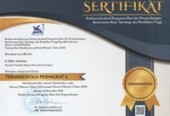The Principle of Proportionality in Drug Control Policy in the Philippines and Indonesia
DOI:
https://doi.org/10.28946/slrev.v9i2.4896Keywords:
Drug Law Enforcement, Human Rights, Indonesia, Philippines, Principle of ProportionalityAbstract
The war on drugs has become a global concern, particularly in Southeast Asia, where drug-related crimes are considered a serious threat to national and international security. Two cases that will be discussed relate to the anti-drug campaigns in the Philippines and Indonesia, both of which have attracted attention due to their controversial law enforcement methods. This study aims to compare the application of the principle of proportionality in drug law enforcement in both countries, focusing on whether the actions taken align with international human rights standards. This research employs a juridical-comparative method, analysing legal policies, government policies, and human rights-related case facts from both countries. In the Philippines, the campaign under President Duterte's administration raised significant concerns regarding extrajudicial killings and the excessive use of power, which deviates from the principle of proportional enforcement. In contrast, Indonesia adopts a more judicial approach, although it still faces criticism for harsh verdicts and the implementation of the death penalty. The findings will reveal significant differences in how the principle of proportionality is interpreted and applied, influenced by political will, law, and institutional accountability. While both countries claim to uphold the rule of law, the level of adherence to the principle of proportionality varies greatly. This study concludes that a balanced and human rights-based approach is essential for sustainable and ethical enforcement of drug policy in Southeast Asia.Downloads
References
A. Javier Treviño, Melanie Romero, ‘Jeremy Bentham’, in Criminology (Oxford University Press, 2022), doi:10.1093/obo/9780195396607-0319
Alex Rikardo Siahaan, Hasan Hiawatha Rifai, and Asmak Ul Hosnah, ‘Disparity in Sentencing and the Effectiveness of Indonesia’s Narcotics Law: A Critical Analysis of Law No. 35 of 2009’, Arkus, 11.1 (2024), pp. 754–66, doi:10.37275/arkus.v11i1.680
Anan, Moh. Shofi, Ade Maman Suherman, and Tri Setiady, ‘Justice and Human Rights: A Study of Legal Protection for Victims of Fabricated Arrests in Narcotics Cases’, Jurisprudensi: Jurnal Ilmu Syariah, Perundang-Undangan Dan Ekonomi Islam, 16.2 (2024), pp. 512–29, doi:10.32505/jurisprudensi.v16i2.9842
Andi Hamzah, Bunga Rampai Hukum Pidana Dan Hukum Acara Pidana (Repository Unhas, 1986)
Berman, Mitchell N., ‘Proportionality, Constraint, and Culpability’, Criminal Law and Philosophy, 15.3 (2021), pp. 373–91, doi:10.1007/s11572-021-09589-2
Briola, Jerbert M., ‘Effective and Humane Ways to Manage the Drug Problem in the Philippines, a Human Rights and Public Health Perspective’, Torture Journal, 27.1 (2017), doi:10.7146/torture.v27i1.26541
Brown Coverdale, Helen, ‘Putting Proportional Punishment into Perspective’, Criminal Law and Philosophy, 2024, doi:10.1007/s11572-024-09736-5
Cousins, Sophie, ‘Five Thousand Dead and Counting: The Philippines’ Bloody War on Drugs’, BMJ, 2016, p. i6177, doi:10.1136/bmj.i6177
Efendi, Bahtiyar, and Widhi Handoko, ‘Implementation of Criminal Law in Handling Narcotics Cases in Indonesia’, Pena Justisia: Media Komunikasi Dan Kajian Hukum, 21.2 (2022), doi:10.31941/pj.v21i2.2678
Fabro, Jaziel M., ‘Lost Lives: Extrajudicial Killings and the Breakdown of Justice in the Philippines’, Journal of Arts, Humanities and Social Science, 1.3 (2024), pp. 14–17, doi:10.69739/jahss.v1i3.128
Fithri, Beby Suryani, ‘Disparity in Judicial Decisions in Narcotics Crimes (A Study of Verdict No. 1192/Pid.Sus/2024/PN.Mdn and Verdict No. 1035/Pid.Sus/2024/PN.Mdn)’, JURNAL MERCATORIA, 17.2 (2024), pp. 143–53, doi:10.31289/mercatoria.v17i2.13145
Fitria, Ferisa Dian, Muchamad Ali Safa’at, and Abdul Madjid, ‘Sentencing Under The Special Minimum Threat For Small-Scale Drug Traffickers: Challenges And Implications For Justice And Drug Eradication Policy’, International Journal Of Humanities Education and Social Sciences (IJHESS), 4.3 (2024), doi:10.55227/ijhess.v4i3.1336
Go, Matthew C., and Maria Corazon A. De Ungria, ‘Forensic Sciences and the Philippines’ War on Drugs’, Forensic Science International: Synergy, 1 (2019), pp. 288–89, doi:10.1016/j.fsisyn.2019.05.003
Greberman, Emily, and Colleen M. Berryessa, ‘Drug Policy, Drug War, and Disparate Sentencing’, in Oxford Research Encyclopedia of Criminology and Criminal Justice (Oxford University Press, 2024), doi:10.1093/acrefore/9780190264079.013.884
Gunawan, Yordan, and Vensky Ghaniiyyu Putri Permana, ‘Extrajudicial Killings over the Drug War in the Philippines under the ICC Jurisdiction’, Jurnal Suara Hukum, 6.1 (2024), pp. 31–47, doi:10.26740/jsh.v6n1.p31-47
Hermawan, Malsal Jajuli Haerudin, and Catharina Dewi Wulansari, ‘Sociological Analysis of Restorative Justice in Rehabilitative Law Enforcement for Drug Abuse Cases’, Ius Poenale, 5.1 (2024), pp. 1–14, doi:10.25041/ip.v5i1.3283
Jasmine Yogaswara, Aisyah, ‘Impact Of Philippines’ Withdrawal From International Criminal Court On Crime Against Humanity Investigation In Philippines’, Padjadjaran Journal of International Law, 4.2 (2021), pp. 226–46, doi:10.23920/pjil.v4i2.413
Kartika, Tantri, and Affila, ‘Implementation Of The Death Penalty In Narcotic Criminal Cases (CASE STUDY OF DECISION NUMBER 203/PID.SUS/2019/PN.BLS.)’, Awang Long Law Review, 5.1 (2022), pp. 335–41, doi:10.56301/awl.v5i1.576
Lamchek, Jayson S., and Teresa Jopson, ‘Confronting the Philippines’ War on Drugs: A Literature Review’, Sociology Compass, 18.5 (2024), doi:10.1111/soc4.13209
Lasco, Gideon, ‘Political Constructions of People Who Use Drugs in the Philippines: A Qualitative Content Analysis’, International Journal of Drug Policy, 130 (2024), p. 104518, doi:10.1016/j.drugpo.2024.104518
Mahmoud Alghali, ‘Regulations and Limitations of Utilitarian Function of Criminal Penalty’, Pakistan Journal of Criminology, 17.2 (2025), pp. 21–32, doi:10.62271/pjc.172.21.32
Manikis, Marie, ‘The Evolution of Proportionality in Sentencing’, in Sentencing, Public Opinion, and Criminal Justice (Oxford University PressOxford, 2025), pp. 53–68, doi:10.1093/9780191991936.003.0006
Manili, Pablo Luis, ‘Decree With Legislative Content in Comparative Constitutional Law’, As-Siyasi, 4.1 (2024), p. 33, doi:10.24042/as-siyasi.v4i1.22711
-, Mary Gail L. Lalic, Wendell M. Quinto -, Joshua G. Gabriel -, Karl Lois Ivan R. Ventus -, and Rhem Rick N. Corpuz -, ‘An Analysis of Media Coverage, Judicial Sentencing, and Law Enforcement Perceptions of Drug Trafficking Cases in the Philippines: Implications for Fairness, Effectiveness, and Public Discourse’, International Journal For Multidisciplinary Research, 7.1 (2025), doi:10.36948/ijfmr.2025.v07i01.34842
Meirelles, Luís Miguel Rechiki, ‘O Retributivismo Da Punição Na Doutrina Do Direito’, Revista Ágora Filosófica, 24.2 (2024), pp. 265–82, doi:10.25247/P1982-999X.2024.v24n2.p265-282
Muhammad Anugrah Utama, 'Securitisation in the Philippines' Drug War', Indonesian Journal of International Relations, 5.1 (2021), pp. 41–61, doi:10.32787/ijir.v5i1.146
Muhs, Lena, ‘Duterte’s “War on Drugs” Rhetoric’, Journal for the Study of Radicalism, 16.2 (2022), pp. 149–64, doi:10.14321/jstudradi.16.2.0149v
Muladi, ‘Pemidanaan Dalam Perspektif Asas Proporsionalitas’, Jurnal Hukum Dan Pembangunan, 44.2 (2015), pp. 237–253
Mutiarin, Dyah, Queenie Pearl V. Tomaro, and David N. Almarez, ‘The War on Drugs of Philippines and Indonesia: A Literature Review’, Journal of Public Administration and Governance, 9.1 (2019), p. 41, doi:10.5296/jpag.v9i1.14355
Pakpahan, Hartato, I Nyoman Nurjaya, Setiawan Nurdayasakti, and Nurini Aprilianda, ‘Reformulating Indonesia’s Narcotics Law on Personal Drug Misuse: A Humanist Approach’, Journal of Asian Social Science Research, 6.2 (2024), pp. 209–32, doi:10.15575/jassr.v6i2.104
Pandjaitan XIV, Qanszelir GB, and Selly Stefany Novelina, ‘Perbandingan Pembuatan Dan Implementasi Kebijakan Indonesia Dalam Menghadapi Status Darurat Narkotika Dengan Filipina Dan Portugal [The Making and Implementation of Indonesia’s Policy in Facing the Narcotics Emergency Status in Comparison with the Philipp’, Verity: Jurnal Ilmiah Hubungan Internasional (International Relations Journal), 14.28 (2023), pp. 41–54, doi:10.19166/verity.v14i28.6572
Pertiwi, Kunti Tri, and Deddy Roemansyah, ‘Hukum Sebagai Penyokong Kebahagiaan: Konsep Utilitarianisme Jeremy Bentham Dalam Konteks Modern’, AL-BALAD : Jurnal Hukum Tata Negara Dan Politik Islam, 4.2 (2024), pp. 63–74, doi:10.59259/ab.v4i2.190
Pulukadang, Novarolina, Rafika Nur, and Sumiaty Sumiaty, ‘Application of the Principle of Due Process of Law Regarding Narcotics Crimes’, JISIP (Jurnal Ilmu Sosial Dan Pendidikan), 7.4 (2023), p. 3316, doi:10.58258/jisip.v7i4.5708
Putra, Bama Andika, and Darwis, ‘The Paradoxical Security Implications of Duterte’s War on Drugs: Emergence of a Domestic Security Dilemma’, Journal of Humanities and Social Sciences Studies, 4.3 (2022), pp. 01–07, doi:10.32996/jhsss.2022.4.3.1
Rafael, Vicente L., ‘Duterte Unbound’, Dissent, 64.2 (2017), pp. 102–5, doi:10.1353/dss.2017.0044
Rafsanjani, Ony, and Aminuddin Mustaffa, ‘Why Should The Death Penalty Not Be Abolish For Narcotics Crimes? A Case Study In Indonesia’, JIIP - Jurnal Ilmiah Ilmu Pendidikan, 5.8 (2022), pp. 3104–10, doi:10.54371/jiip.v5i8.813
Rakhmawati, Neni, ‘International Criminal Court Jurisdiction Against Human Rights Violations by Philippine President After Withdrawal from Rome Statute’, Semarang State University Undergraduate Law and Society Review, 3.1 (2023), pp. 91–108, doi:10.15294/lsr.v3i1.57091
Ramdlonaning, Anisya, and Eva Achjani Zulfa, ‘Analisis Kebijakan Rehabilitasi Bagi Penyalahguna Narkotika Di Indonesia’, Jurnal Ius Constituendum, 8.1 (2023), pp. 50–68, doi:10.26623/jic.v8i1.6119
Renzikowski, Joachim, ‘Pena e Direito Penal Em Kant: Nove Teses’, Revista Do Instituto de Ciências Penais, 2022, pp. 1–23, doi:10.46274/1809-192XRICP2022v7n1p1-23
Ryberg, Jesper, ‘Retributivism and the (Lack of) Justification of Proportionality’, Criminal Law and Philosophy, 15.3 (2021), pp. 447–62, doi:10.1007/s11572-021-09579-4
Simangan, Dahlia, ‘Is the Philippine “War on Drugs” an Act of Genocide?’, Journal of Genocide Research, 20.1 (2018), pp. 68–89, doi:10.1080/14623528.2017.1379939
Ucaryilmaz, Talya, ‘The Principle of Proportionality in Modern Ius Gentium’, Utrecht Journal of International and European Law, 36.1 (2021), pp. 14–32, doi:10.5334/ujiel.529
Webster, Molly K, ‘Alternative Courts and Drug Treatment: Finding a Rehabilitative Solution for Addicts in a Retributive System’, SSRN Electronic Journal, 2015, doi:10.2139/ssrn.2685361
Widjaja, Gunawan, and Ririn Nurhidayanti, ‘Analysis of the Abolition of the Death Penalty for Drug Trafficking Crimes in Indonesia the Case Study: SERANG District Court Decision Number 837/Pid.Sus/2020/PN Srg’, International Journal of Research and Innovation in Applied Science, IX.V (2024), pp. 496–508, doi:10.51584/IJRIAS.2024.905044
Zavgorodniaia, A. A., ‘Pragmatism of the Proportionality Method in Legal Argumentation in the Contact of Interests’, Courier of Kutafin Moscow State Law University (MSAL)), 9, 2022, pp. 179–87, doi:10.17803/2311-5998.2022.97.9.179-187
Downloads
Published
Issue
Section
License

This work is licensed under a Creative Commons Attribution-ShareAlike 4.0 International License.















